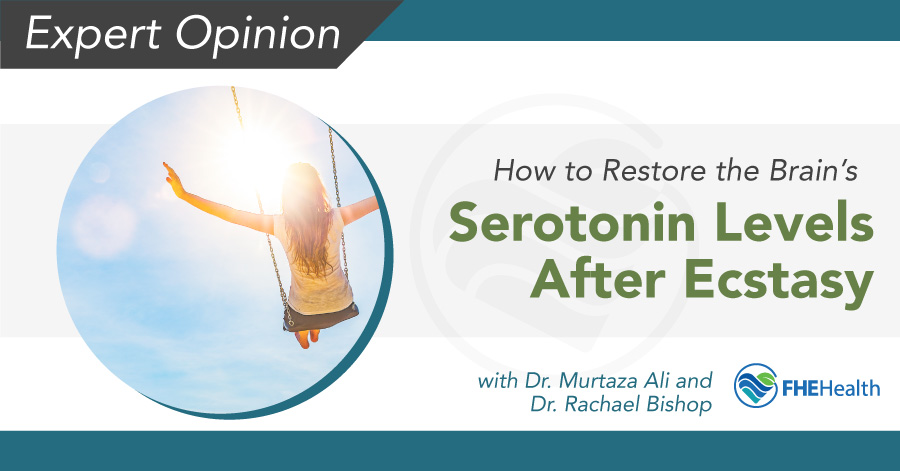
This article has been reviewed for accuracy by our peer review team which includes clinicians and medical professionals. Learn more about our peer review process.
Drugs of abuse that cause mind-altering experiences, whether a “high” or change in mood or perception of reality, upset the brain’s normal neurochemical balance. The synthetic drug Ecstasy (also known as MDMA) is no exception. Users typically experience an extreme elevation in mood, thanks to the drug’s stimulant and hallucinogenic properties.
Ecstasy/MDMA and Serotonin
Meanwhile, the brain under duress is undergoing its own transformation. Ecstasy acts on all of the major neurotransmitters. Each of these chemical messengers that sends signals between nerve cells fulfills a vital role in maintaining mental and emotional well-being. Ecstasy triggers the release of these neurotransmitters at much higher levels while, simultaneously, inhibiting their reuptake.
Consequently, over the long run, the brain readjusts to the presence of MDMA by scaling back its own natural production of neurotransmitters like serotonin. That begs the question, “Why is that a problem?” and “Are there ways to replenish serotonin once it is depleted?”
With these questions and others, we invited the help of two FHE Health experts: Chief Medical Officer Dr. Murtaza Ali, MD, and clinical psychologist Dr. Rachael Bishop, Psy.D., who specializes in neuropsychology and neurorehabilitation.
How Serotonin Works
What many people may not know is that serotonin occurs throughout the body and plays multiple roles. “Serotonin is produced in the brain stem,” Dr. Bishop said. “It is involved in the regulation of pain, mood, appetite, sex drive, and falling asleep.” She added that “low serotonin is thought to be involved in depression, obsessive-compulsive disorder (OCD), and aggression.”
Strikingly, researchers have said the gut produces an estimated 90 percent of the body’s serotonin. This is significant in light of recent science that has revealed a strong link between the gut and mental health.
Serotonin even occurs in platelets and facilitates healthy blood clotting, according to Dr. Ali. He said serotonin is also active in both the central and peripheral nervous systems and went on to explain how:
- In the central nervous system (CNS), which consists of the spinal cord and the brain, serotonin helps to govern attention and behavior and regulate body temperature.
- In the peripheral nervous system (PNS), namely the nerves and ganglia outside the CNS, serotonin is involved with functions ranging from digestion to the constriction of bronchial and uterine muscles and blood vessels.
What Causes Serotonin Depletion and What MDMA Serotonin Depletion Is
MDMA is like other drugs of abuse that, as Dr. Bishop put it, “may cause inflammation, toxicity, and/or can cause neurons to die, become dormant, or start firing irregularly.” With respect to serotonin, in particular, a study by the National Institute on Drug Abuse (NIDA) found that when taken twice daily for only four days, a moderate dose of MDMA damaged the nerve cells that produce serotonin. The resulting depletion in serotonin lasted long after the use of MDMA (at least seven years).






